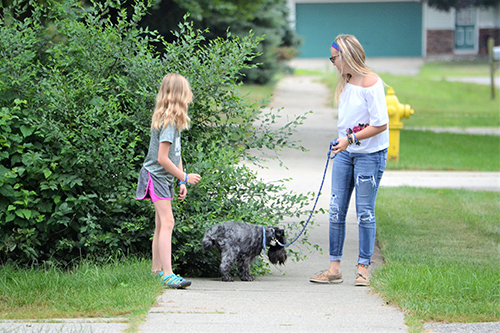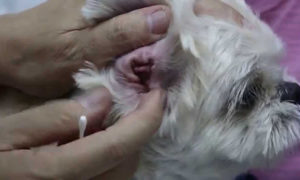
An unhappy Shih Tzu is a Shih Tzu that is not healthy. Therefore, unhealthy dogs cannot be good loyal companions. Over time, a sick and ill dog will only lead to an ill-mannered canine companion that will be a nuisance to you and your household. It is essential to take the specific steps to ensure that you have and maintain a healthy and happy Shih Tzu.

One crucial step is to take the time to choose the right veterinarian that can provide all yearly check-ups. Also, have your dog spayed and neutered promptly, select a proper healthy diet, and carefully educate yourself about issues and topics on the health of your dog.
Additionally, I suggest that all dog owners take some canine CPR classes, which can save the life of your dog or someone else’s dog. In this article, you will learn more about the steps needed to raise a healthy and happy Shih Tzu.
Choose the right veterinarian: Important step for healthy and happy Shih Tzu
Some clinics specialize in treating smaller pets, while some specialize in much larger animal care, and then some specialize in a variety of animals, including reptiles and livestock.
Finding the right veterinary clinic for your dog is just like you finding the right doctor for yourself. Therefore, do not take this step lightly. Remember, your little companion deserves the very best health care that her parent would want for him or herself. The best way to find a respectable veterinarian is to ask other dog owners in your area about their experiences with specific providers. If they are happy with the service their dogs are getting, then there is a good chance that you will also be.
Once you find the right provider, you can take your dog into the clinic a few times without having an appointment, so that your companion can get accustomed to the surroundings as well as smells.
Timely neutering and spaying are essential

Choosing the best time to spay and neuter your Shih Tzu is not an exact science. There is an assortment of opinions on this particular topic. However, most veterinarians do agree that the earlier, the better. Therefore, the consensus is that spaying and neutering need to take place between the ages of four and six months of age.
One of the benefits of spaying and neutering your dog is that males and females are less likely to display aggressive behaviors. For instance, fighting, mostly seen in male dogs and directed toward other males, is less likely to occur after neutering. Also, the intensity of other aggressions, such as short-tempered aggression in females, will likely cease to exist after spaying. Therefore, do not hesitate to make that call as soon as possible.
Do spaying and neutering affect temperament?
Many dog owners ask this question because they are worried that a spayed or neutered dog will lose its robustness, when in reality, many undesirable, destructive traits, resulting from hormonal influence, may resolve after the procedure. You will be acting as a careful, knowledgeable, and caring pet parent that is ensuring a healthy and happy Shih Tzu.
Do spaying and neutering affect escape and wandering?
This question is another primary concern of dog owners. A spayed or neutered Shih Tzu is less likely to roam, and emasculated male dogs have the propensity to patrol much smaller sized outdoor regions and are less likely to participate in conflicts about territory with other dogs.
Will my dog gain weight after spaying and neutering?
Some changes will take place to your dog metabolically; however, most puppies that gain weight is not because of the procedure itself. Mostly, the weight gain is due to owners that feel guilty about what the puppy went through and, therefore, feed them more treats than usual.
If your Shih Tzu gains weight after the procedure, adjust the consumption of food and treats, as needed. Also, once the stitches heal, continue the puppy’s daily exercise schedule before the surgery; you will have your healthy and happy Shih Tzu back in no time.
Learn as much as you can about vaccinations.

Adults dogs need to get vaccinated every three years or so. However, some veterinarians insist that you treat your puppy every year. In my opinion, yearly is just too much. Many professionals are now coming out and calling attention to “over-vaccinating.”
Whether your dog needs a booster or not can be ascertained with a simple blood test given in your veterinarian clinic. Therefore, it is in your Shih Tzu’s best interest that you ask for a blood test before agreeing to the booster.
The vaccinating of puppies is essential because they need protection against four common but serious diseases: Distemper, Adenovirus, Parvovirus, and Parainfluenza. After one week of getting the appropriate vaccinations, your puppy will have protection from the conditions mentioned above. Making sure that your dog is vaccinated will ensure a healthy and happy Shih Tzu.




